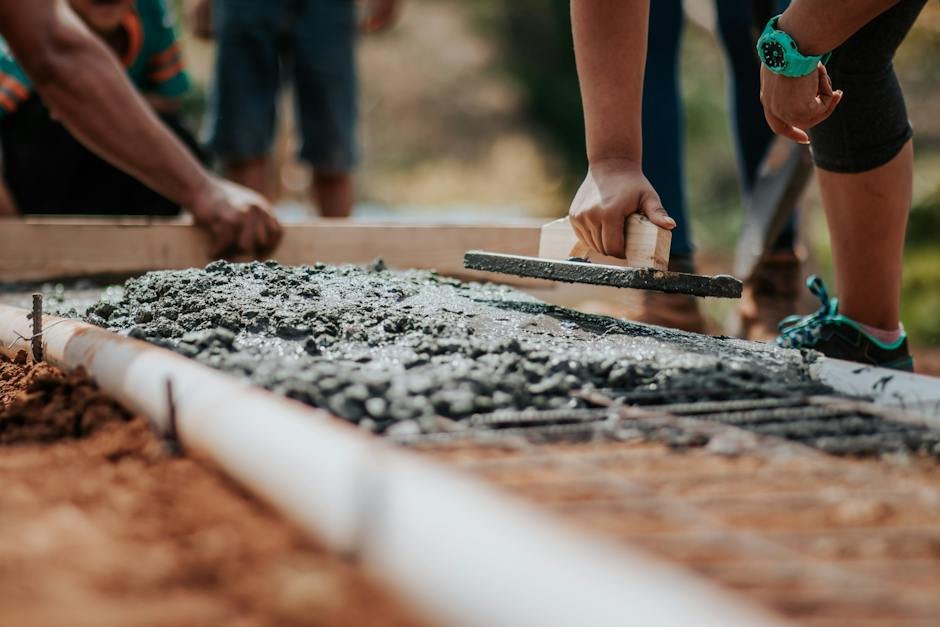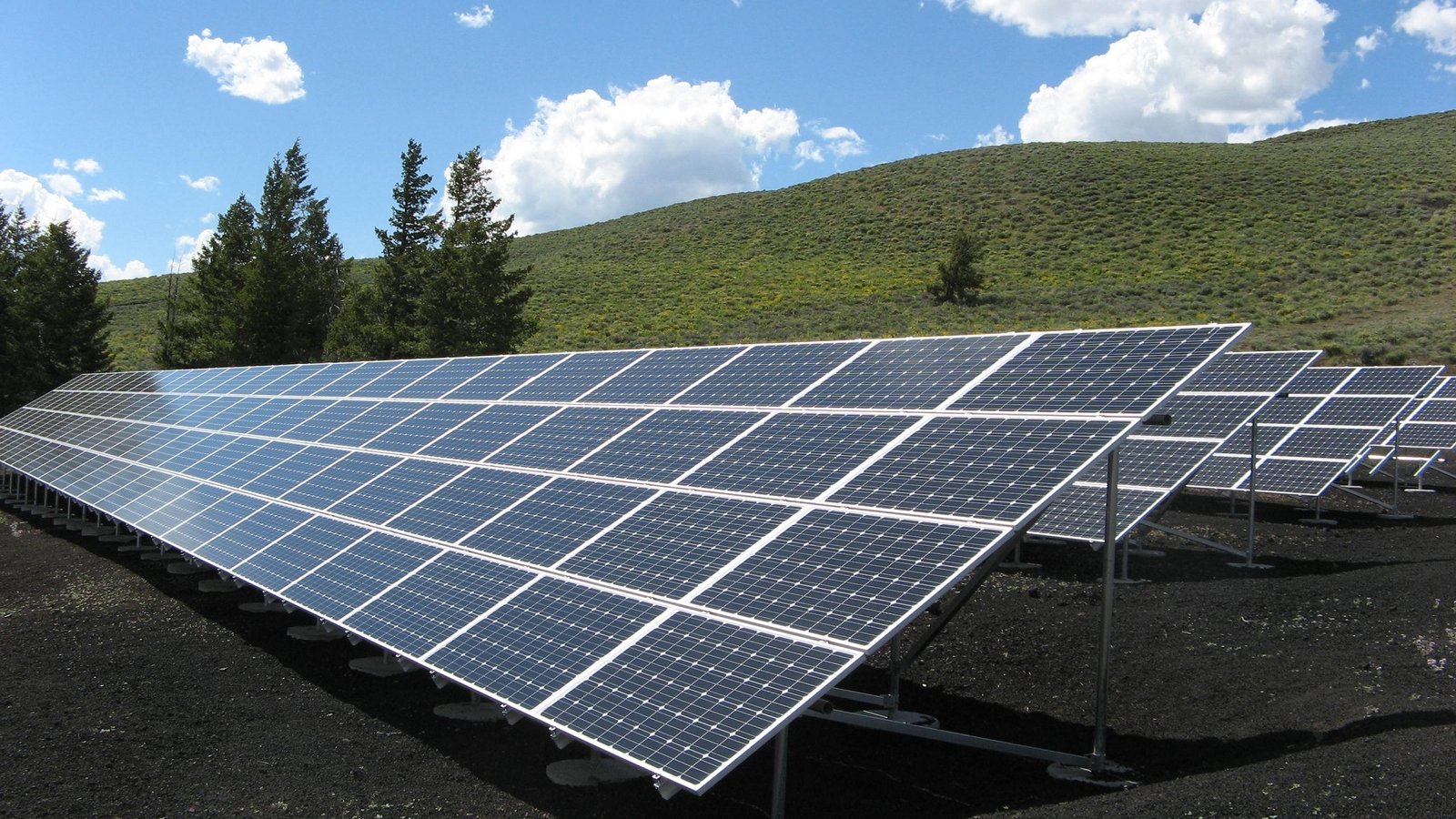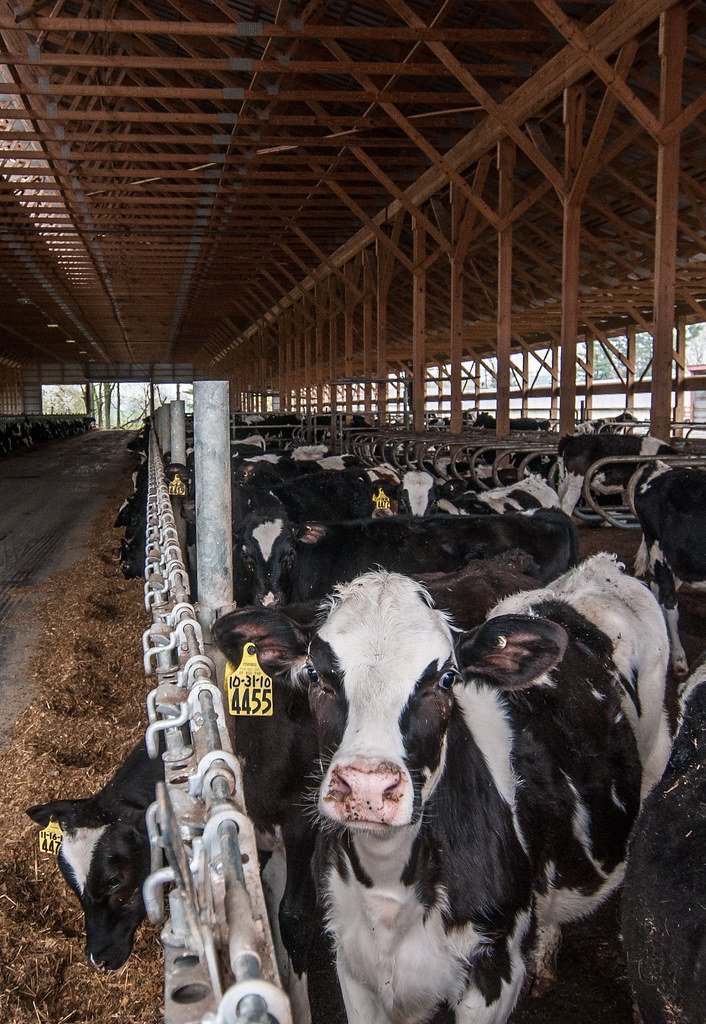Now Reading: The Importance of Off-Grid Community Building
-
01
The Importance of Off-Grid Community Building

The Importance of Off-Grid Community Building
Imagine a place where neighbors thrive on interconnectedness, independence reigns supreme, and nature reclaims its rightful place amidst the chaos of modern life. Welcome to the world of off-grid community building—an enchanting concept that challenges societal norms, breathes life into forgotten traditions, and ignites a flame of resilience. In an era of sturdy brick walls and digital isolation, there exists a need to reconnect with our roots, both in the literal and metaphorical sense. This irresistible allure beckons us to band together, pooling our skills, resources, and dreams, as we embark on a journey towards self-sufficiency and communal harmony. Delving deep into the importance of off-grid community building, we unravel the myriad reasons that make it a living, breathing testament to the timeless sentiments of unity, sustainability, and genuine human connection.
Table of Contents
- Building Resilient Communities: The Power of Off-Grid Living
- Harnessing Sustainable Technologies: Energizing Off-Grid Community Development
- Fostering Self-Reliance: Empowering Off-Grid Communities through Skill Sharing
- Sustainable Food Systems: Cultivating Off-Grid Community Gardens
- Creating Strong Social Networks: Promoting Collaboration in Off-Grid Communities
- Q&A
- Key Takeaways

Building Resilient Communities: The Power of Off-Grid Living
Imagine a community where the hustle and bustle of modern life takes a backseat, replaced by a serene and self-sustaining lifestyle. Off-grid living, with its inherent focus on independence and sustainability, has the power to transform communities and create a stronger, more resilient future.
One of the key advantages of off-grid living is the ability to harness renewable energy sources, such as solar and wind power. By investing in solar panels and wind turbines, communities can generate clean energy that reduces both their carbon footprint and dependence on traditional power grids. This innovative approach not only protects the environment but also ensures a consistent energy supply, even in the face of natural disasters or power outages.
Additionally, off-grid communities strive to be self-reliant in terms of food production. By embracing permaculture and organic farming techniques, these communities can cultivate their own fresh and nutritious food, ensuring food security for all residents. From rooftop gardens to community-supported agriculture, the possibilities are endless.
Moreover, off-grid living encourages a simpler and more sustainable way of life. By reducing consumption and waste, these communities foster a culture of minimalism and conscious living. Residents learn to maximize the use of available resources, practice recycling, and explore DIY solutions, ultimately creating a more sustainable future.
Building resilient communities through off-grid living is not just about a physical transformation. It is a mindset that values self-sufficiency, connection with nature, and the importance of preserving our planet. Together, these communities pave the way for a greener, more resilient future where individuals and nature coexist harmoniously.

Harnessing Sustainable Technologies: Energizing Off-Grid Community Development
When it comes to off-grid community development, harnessing sustainable technologies is the key to energizing progress. This entails exploring innovative solutions to meet the energy needs of communities that lack access to traditional power grids.
One such sustainable technology that has proven to be immensely beneficial is solar power. By harnessing the energy of the sun, communities can generate clean and renewable electricity without relying on fossil fuels. Not only does solar power help reduce greenhouse gas emissions and combat climate change, but it also provides a reliable and cost-effective source of energy, ensuring a sustainable future for off-grid communities.
Another vital component of sustainable off-grid development is the effective use of energy storage systems. These systems enable communities to store excess energy generated during peak times for use during periods of low or no sunlight. By incorporating advanced battery technologies and smart grid solutions, off-grid communities can optimize and maximize the utilization of their renewable energy resources.
Fostering Self-Reliance: Empowering Off-Grid Communities through Skill Sharing
At the heart of off-grid communities lies a desire for self-reliance and self-sustainability. By embracing skill sharing, these communities can transform into powerful hubs of empowerment, where individuals thrive on their own abilities and the knowledge they gain from one another.
Through engaging in skill-sharing activities, off-grid communities can harness a myriad of benefits. Firstly, individuals can learn new skills and techniques that enable them to be more self-sufficient in various aspects of their lives. Secondly, skill sharing fosters a sense of unity and camaraderie within the community, as people come together to exchange their expertise and support one another’s growth. Thirdly, it facilitates a sustainable lifestyle by reducing reliance on external resources and services.
From learning how to cultivate organic gardens and build renewable energy systems to honing traditional crafts and acquiring medical knowledge, the possibilities for skill sharing within off-grid communities are abundant. By sharing these skills, community members can create a network of resilience that not only enriches their own lives but also inspires others to become more self-reliant.
So, let us embrace the power of skill sharing and empower off-grid communities to foster self-reliance. Together, we can create a stronger and more sustainable future.
Sustainable Food Systems: Cultivating Off-Grid Community Gardens
Growing your own food has never been more important or rewarding than in off-grid community gardens. These sustainable food systems provide a beacon of self-sufficiency and resilience, enabling individuals and communities to develop a deeper connection with nature while reducing their carbon footprint.
Within these gardens, you can embrace a plethora of innovative practices aimed at promoting sustainability. From composting organic waste to capturing rainwater for irrigation, off-grid community gardens are a hub of eco-friendly techniques. By adopting regenerative agricultural methods that prioritize soil health, these gardens not only produce nutritious food but also protect and enhance the natural environment.
Benefits of off-grid community gardens:
- Access to fresh, organic produce
- Promotion of biodiversity through companion planting
- Opportunities for education and skill-sharing
- Fostering a sense of community and social cohesion
- Reduced food waste through efficient harvesting methods
Imagine a world where communities rely on their very own patches of green to nourish themselves sustainably. Off-grid community gardens are turning this vision into reality, promoting a greener future rooted in self-sufficiency.
Creating Strong Social Networks: Promoting Collaboration in Off-Grid Communities
In the world of off-grid communities, where individuals and families live independently from central power grids, establishing strong social networks is essential for promoting collaboration and support. In these unique settings, where access to modern amenities may be limited, social connections form the backbone of community resilience and effectiveness. Creating these networks requires a combination of shared goals, open communication, and active participation.
One effective strategy is to facilitate regular community gatherings where residents can come together to discuss common challenges, celebrate successes, and share resources. These gatherings can take the form of town hall meetings, social events, or skill-sharing workshops. By fostering face-to-face interactions, community members have the opportunity to build trust, deepen relationships, and foster a sense of belonging.
Another important aspect of creating strong social networks in off-grid communities is leveraging online platforms for communication and collaboration. Online forums, social media groups, and community websites can provide a virtual space for residents to connect with each other, share knowledge and ideas, and coordinate collective projects. These platforms offer a convenient way for individuals to contribute and participate, especially for those who may face geographical barriers preventing regular physical interaction.
- Promote inclusivity: Ensure that everyone in the community has equal access to information and resources, regardless of their background or circumstances.
- Encourage active engagement: Encourage community members to actively contribute and participate in discussions, projects, and initiatives.
- Cultivate a supportive culture: Foster a collaborative and supportive culture within the community, promoting empathy, understanding, and kindness.
By fostering collaboration and connectivity in off-grid communities, we lay the foundation for resilience, innovation, and collective problem-solving. It is through these strong social networks that these communities can flourish, thrive, and create a better future for all.
Q&A
What is the concept of off-grid community building?
Off-grid community building refers to the practice of creating self-sufficient communities that rely on renewable energy sources, grow their own food, and prioritize sustainable living. These communities aim to disconnect from traditional infrastructure and foster a sense of harmony with nature.
Why is off-grid community building important?
Off-grid community building allows individuals to reduce their carbon footprint, become less dependent on fossil fuels, and foster a stronger sense of community. It provides a sustainable alternative to mainstream living, encouraging a closer relationship with nature and fostering self-sufficiency.
What are the benefits of living in an off-grid community?
Living in an off-grid community offers numerous benefits, including a stronger sense of connection with nature, enhanced self-reliance, reduced environmental impact, and increased resilience against external crises. Additionally, it allows for a more meaningful and intentional way of living, fostering a greater sense of purpose and community engagement.
How do off-grid communities source their energy?
Off-grid communities primarily rely on renewable energy sources such as solar panels, wind turbines, or hydroelectric systems to fulfill their energy needs. By harnessing clean and sustainable energy, these communities reduce their reliance on non-renewable resources and contribute to a greener future.
What steps can individuals take to build an off-grid community?
Individuals interested in building off-grid communities can start by establishing a shared vision, finding like-minded individuals, and securing a suitable piece of land. Collaborative planning, focusing on sustainable infrastructure like organic farming, renewable energy, and water conservation, is crucial to successfully build and maintain an off-grid community.
What challenges can arise when building and living in an off-grid community?
Some common challenges faced by off-grid communities include initial financial investment, acquiring proper permits and legalities, and adapting to a more self-reliant lifestyle. Additionally, factors like extreme weather conditions, resource management, and community dynamics can pose ongoing challenges that require effective problem-solving skills and collective effort.
Can off-grid communities be self-sufficient in terms of food production?
Yes, off-grid communities can strive to achieve self-sufficiency in food production by implementing organic farming practices, permaculture techniques, and maintaining livestock. By growing their own fruits, vegetables, and raising animals for dairy and meat, these communities can minimize their reliance on external food sources and enhance their sustainability.
How do off-grid communities promote a sense of belonging and community engagement?
Off-grid communities often emphasize sharing skills, resources, and knowledge within their community, fostering a strong sense of belonging and collaboration. Regular communal activities, shared responsibilities, and collective decision-making processes create an environment where everyone has a voice and actively contributes to the well-being of the community.
Is off-grid living suitable for everyone?
Off-grid living requires a certain level of dedication, resourcefulness, and adaptability. While it may not be suitable or desired by everyone, those who value sustainability, self-sufficiency, and a deeper connection with nature can find immense fulfillment and a sense of purpose in off-grid community living.
Key Takeaways
In the vast tapestry of our interconnected world, where screens reign supreme and virtual communities thrive, there exists a forgotten realm. A realm where the tangible hearts of humanity gather, beating in harmony with the rhythm of the earth. This realm is off-grid community building, an extraordinary testament to the inherent longing within us to connect not only to one another but also to the very fabric of existence.
As the sun dips below the horizon, leaving behind a kaleidoscope of colors, these individuals unite under the starlit sky. Their journeys may differ, their voices may speak in diverse tongues, but their purpose remains steadfast – to foster a sense of belonging, rooted in the embrace of untouched landscapes and genuine human connection.
In the embrace of these off-grid communities, individuals find solace and inspiration, free from the clutches of bustling cities and the numbing monotony of daily routines. Here, there are no whispers of artificial boundaries or relentless consumerism. Instead, minds unravel, discovering the boundless potential that resides within the human spirit.
These unique communities – hidden oases in a desert of conformity – are a refuge for those seeking to redefine what it means to truly live. They stitch back together the frayed fabric of our society, reminding us of the importance of self-reliance, sustainable living, and collective harmony. In their embrace, we rediscover forgotten skills, such as growing our own food, constructing our dwellings, and nurturing the land that sustains us.
For it is in communal living that we find strength. Through shared experiences and collective wisdom, we tap into a wellspring of resilience and innovation that can transform the way we relate to both the natural world and each other. Bonds deepen, transcending the superficial, and genuine friendships blossom beneath the shade of ancient trees.
But the significance of off-grid community building reaches far beyond the boundaries of these secluded enclaves. It speaks to the broader challenges we face as a society – from climate change to overconsumption, from social isolation to the erosion of empathy. It beckons us to break free from the chains of a disconnected existence and reconnect with the very essence of what it means to be human.
So, let us pause for a moment to listen to the stories whispered by the silent winds, stories of a different way of living. Let us draw inspiration from the collective spirit that thrives when we unplug from the cacophony of modernity and savor the simplicity of self-sufficiency. May we embrace the challenge of building communities grounded in respect, equity, and shared responsibility.
For in the tapestry of our interwoven lives, the importance of off-grid community building shines as a beacon of hope and possibility. It sparks a flicker in the depths of our souls, illuminating a path that leads to a vibrant future where human connection and ecological harmony stand side by side. So let us embark on this journey together, for the importance of off-grid community building is limited only by the limits of our imagination.
As an affiliate, my content may feature links to products I personally use and recommend. By taking action, like subscribing or making a purchase, you’ll be supporting my work and fueling my taco cravings at the same time. Win-win, right?
Want to read more? Check out our Affiliate Disclosure page.





